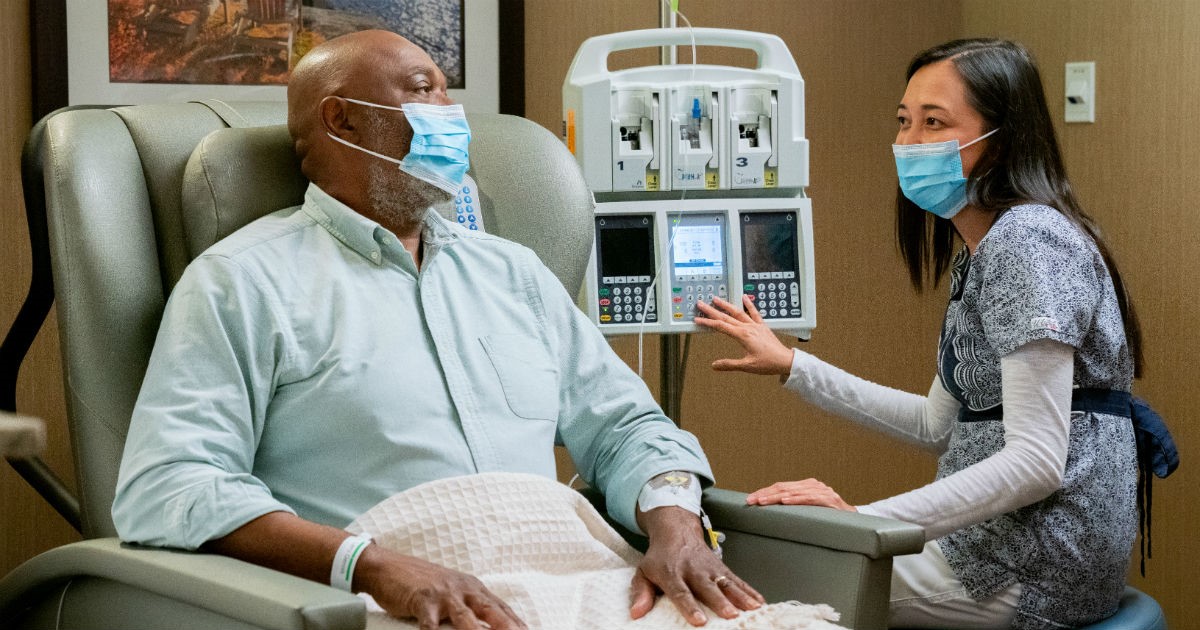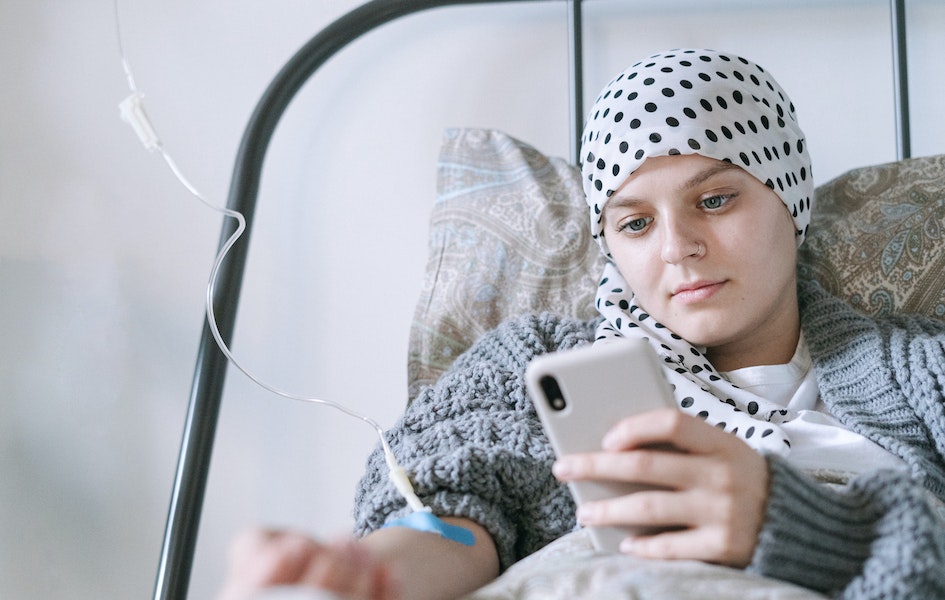What is Chemotherapy?
Chemotherapy is a medicinal therapy that uses powerful chemicals to kill fast-growing cells in your body. Chemotherapy is most frequently used to treat cancer because cancer cells reproduce and develop considerably more rapidly than most body cells. Although chemotherapy is a successful treatment for many cancer types, there is a chance that it will have adverse effects. While some side effects of chemotherapy are minor and manageable, others might have adverse consequences.

Why is Chemotherapy Done?
Chemotherapy is done to eradicate cancerous cells in cancer patients. Chemotherapy can be administered to cancer patients in a variety of situations, including:
-
To treat cancer without additional therapies. Chemotherapy can be used as the main or only form of cancer treatment.
-
To eliminate cancer cells that are hidden after other therapies. After previous treatments, such as surgery, chemotherapy is used to eliminate any cancer cells that may still be present in the body. Adjuvant treatment is the term used by doctors.
-
To get you ready for additional treatments. A tumor can be reduced by chemotherapy so that additional therapies, such as radiation and surgery, are feasible. Neoadjuvant treatment is the term used by physicians.
-
To reduce symptoms and signs. Chemotherapy destroys some cancer cells, which may help relieve cancer signs and symptoms. Palliative chemotherapy is the term used by doctors.
When is Chemotherapy Used?
Chemotherapy can be done if cancer has spread or there's a risk it will.
It can be used to:
-
Completely cure cancer (curative chemotherapy).
-
Increase the efficacy of other therapies; for instance, it can be performed in combination with radiotherapy (chemoradiation) or performed before surgery (neo-adjuvant chemotherapy).
-
Reduce the risk that cancer may reoccur after radiation or surgery (adjuvant chemotherapy).
-
Relieve symptoms if a cure is not possible (palliative chemotherapy).
Chemotherapy varies in its effectiveness. Inquire with your doctors about your possibilities of responding well to treatment.
Types of Chemotherapy
Chemotherapy is carried out through several methods. The most common types are:
-
Intravenous chemotherapy – It is carried out in a hospital and involves the administration of medication by a tube inserted into a vein in the hand, arm, or chest.
-
Oral chemotherapy (chemotherapy tablets) - This involves a set of medications taken at home along with check-ups.
Side effects that occur during chemotherapy treatment
Many of these side effects can be prevented or treated. Most side effects subside after treatment ends. Common side effects of chemotherapy drugs include:
- Nausea
- Vomiting
- Diarrhea
- Hair loss
- Loss of appetite
- Fatigue
- Fever
- Mouth sores
- Pain
- Constipation
- Easy bruising
- Bleeding
Long-lasting and late-developing side effects
Additionally, some adverse effects of chemotherapy treatments can take months or even years to manifest. Depending on the chemotherapy treatment, late side effects can include the following:
- Lung tissue damage
- Heart complications
- Infertility
- kidney diseases
- Nerve injury (peripheral neuropathy)
- Second cancer risk
How to determine the chemotherapy drugs that you'll receive?
Your doctor chooses which chemotherapy drugs you'll receive based on several factors, including:
- Type of cancer
- Stage of cancer
- Overall health
- Previous cancer treatments
- Your goals and preferences
Discuss your treatment options with your doctor. Together you can decide what's right for you.
Is Chemo Painful?
Chemotherapy's side effects include mouth sores, headaches, and stomach pain. Burning, numbness, and tingling or shooting pains in your hands and feet are also found. Cancer and chemotherapy, both have the potential to cause pain. It's also very crucial to discuss the discomfort openly with your cancer doctor or nurse.
Informing your loved ones about your suffering will enable them to support you in managing it. Take your painkillers consistently, even when you aren't experiencing pain (pain is harder to control when playing catch-up). Other ways of pain management include yoga, deep breathing, or other soothing activities.
How do you prepare for Chemo?
Chemotherapy preparation depends on the medications and how you'll take them. To help you get ready for your chemotherapy treatments, your doctor will provide you with detailed instructions. You might have to:
-
Surgically implant a device before starting intravenous chemotherapy. Your doctor may suggest a device, such as a catheter, port, or pump for your chemotherapy intravenously—into a vein. Typically, chemotherapy medications are administered through a big vein in your chest, which can be inserted surgically with a catheter or through a device.
-
The tests and procedures have to be done before starting chemotherapy to ensure your body is ready. Blood tests can determine if your heart, kidneys, and liver are in good condition to start chemotherapy. If there is an issue, your doctor might postpone your therapy or decide on a chemotherapy agent and dosage that is safer for you.
-
Visit the dentist. Your doctor might advise having your teeth examined by a dentist for indications of infection. Since some chemotherapy may impair your body's capacity to fight infections, treating existing infections may lessen the chance of complications during chemotherapy.
-
Be prepared for adverse effects. Make the necessary preparations and ask your doctor what side effects to anticipate during and after treatment. For instance, you might want to think about your options for storing your sperm or eggs for use in the future if your chemotherapy treatment will make you infertile. Plan for a head covering if your chemotherapy will induce hair loss.
Opinions of MMPeers on Chemotherapy
“Chemotherapy is a risk reward proposition. There is a good chance for a tumor response, but it comes with downside side effects which can significantly change your quality of life. There are several treatment options after chemo, so it's not a one size fits all strategy.”- Dr Randy
“It can reduce red blood cell, white blood cell, and platelet counts. It can cause nausea, vomiting, diarrhea, constipation, and neuropathy. It can cause fatigue and loss of appetite. It can cause hair loss. It can cause hand-foot syndrome and mouth sores, as well as nail problems. It can cause hearing loss and injury to the heart, lungs, and kidneys”- Dr Alireza
“Chemotherapy has come a long way over the last decades. it used to have a major side effect and has been refined to target cancerous cells, improving safety profile and efficacy. The typical hair loss, nausea, vomiting, diarrhea symptoms have been mitigated by newer chemotherapeutic.”- Dr Ziad
“Chemotherapy targets all fast-growing cells, including cancer cells. This means chemotherapy kills cancer cells but can also damage other cells in your body potentially causing side effects. Blood cells & the cells in your skin, hair follicles & digestive tract are examples of cells that grow & multiply quickly. Some common side effects of chemotherapy occur in these areas, including Anemia, bleeding, infection, fatigue, hair loss, diarrhoea, constipation, nausea & vomiting, & loss of appetite.”- Dr Peter
“Chemotherapy is designed to kill fast spreading cancer cells but also damages healthy cells which leads to SE such as fatigue, hair loss, nausea, anemia, organ damage and "chemo brain". The chemo treatment itself can lead to depression and anxiety. Chemo is given in cycles to minimize as much damage as possible. Newer treatments have helped to decrease some of the more damaging SE of the past.”- Dr Angela
Are you a physician or healthcare practitioner?
Become a My Medical panel member and explore the many benefits of joining. Start your paid medical survey journey here - sign up










